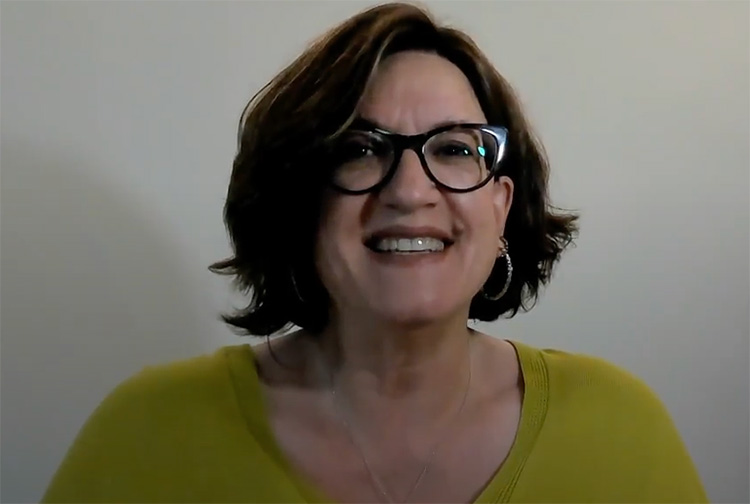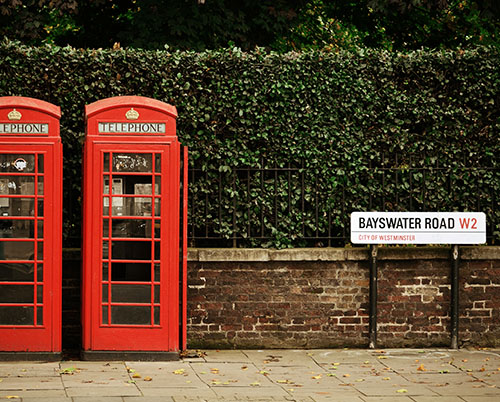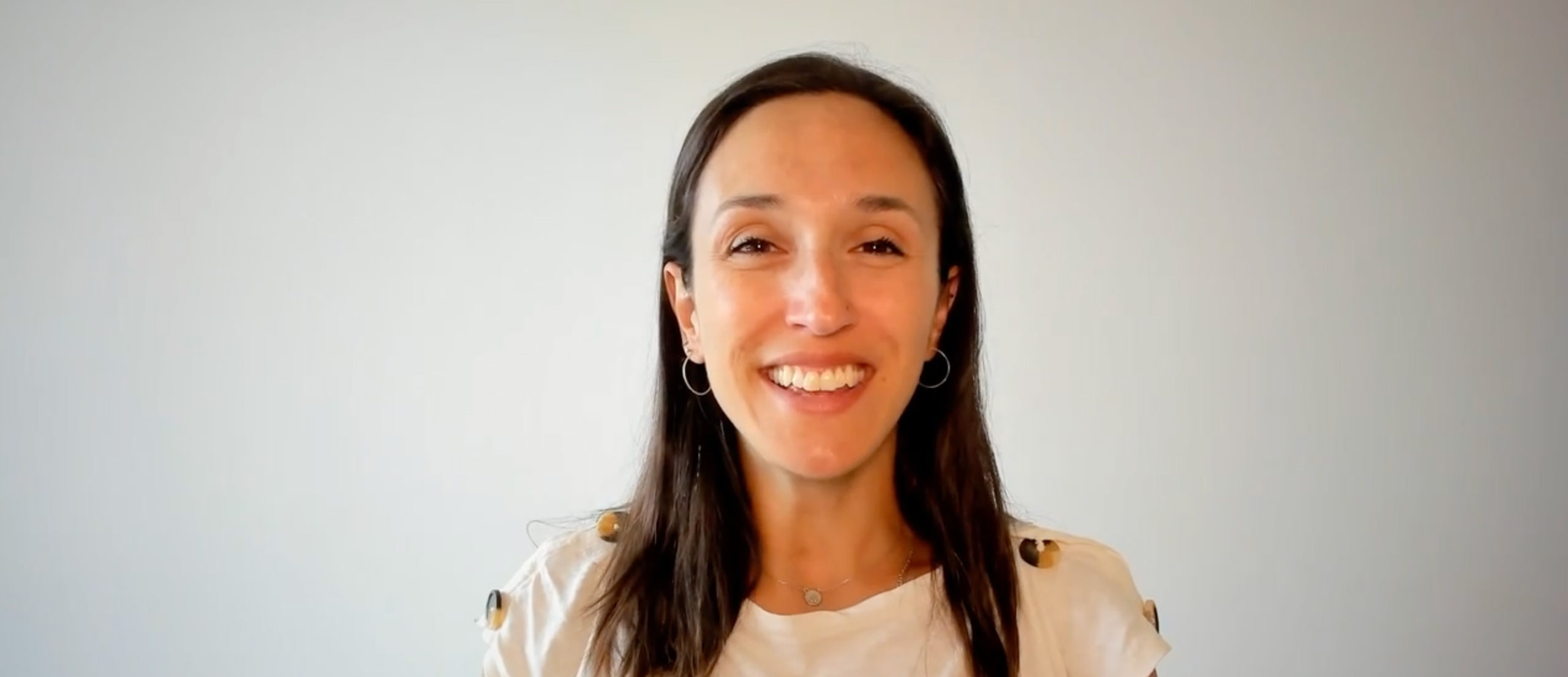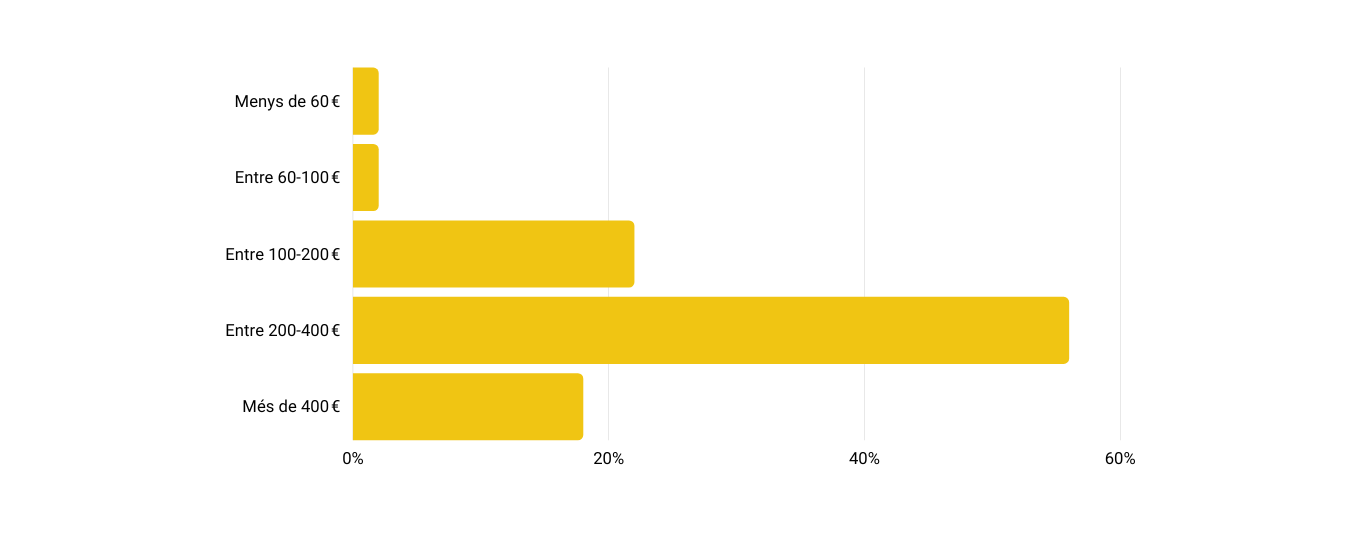Misrepresenting the reality of the labour market
Unemployment rises slightly in Catalonia in July, despite the fact that the employment record has been maintained. But can we trust the reliability of the official data? Are there inactive workers who should be counted as unemployed?
Catalonia has registered an upturn in unemployment after five consecutive months of a downward trend. According to data published by the Ministry of Labour, during July, the Catalan labour market added 1,612 more unemployed people (+0.49%) than in June. Despite this slight increase in unemployment, it remains the lowest unemployment figure since the 2008 crisis.
Currently, there are a total of 331,356 unemployed people, but in the last year, the total number of unemployed has been reduced by 10,035 people, 2.94% less. Compared to 2022, there are 103,185 more contracts, which is equivalent to a 2.8% increase. In total, there are 3.75 million workers in Catalonia and an unemployment rate of 8.44%.
The unemployment figures for Spain as a whole also reflect the best figures for 15 years. The Spanish economy continues to create jobs and reduce unemployment for the fifth consecutive month, although the pace slowed in July to below the historical average. The active population increases to 23.8 million people and the number of employed exceeds 21 million, another record high.
Unemployment stood at 11.6%, a fall of 11.7 points, after 365,300 people found work in the second quarter of the year, adding 595,614 people to Social Security since January. On the other hand, the number of unemployed registered at the offices of the public employment services fell by 10,968 people in July, -0.41% compared with the previous month, to a total of 2.68 million.
Inactive workers who are not registered as unemployed
In March 2022, the latest labour reform came into force, one of the main objectives of which was to change the production model, moving from temporary to permanent contracts in order to reduce temporary employment and precariousness. Therefore, work and service contracts disappeared, while the possibility of temporary contracts was restricted to very specific situations that cannot exceed 90 days worked per year.
In exchange, it was proposed that companies should use fixed-term contracts so that people doing seasonal work would not have to worry about whether their contract would be renewed after a period of inactivity and would have the same rights as workers with a permanent contract.
Despite the benefits for employees that this type of contract brings, it has the counterpart that workers who were previously considered unemployed are no longer counted as unemployed. In other words, when an employee with a fixed-term contract enters a period of inactivity, he or she receives unemployment benefits, but is not counted as unemployed, but is considered a “jobseeker with an employment relationship”.
This is a significant number of people who, in Catalonia alone, last year accounted for 5.7% of all workers affiliated with Social Security in Catalonia under this type of contract. If we take figures for the whole of Spain in December 2022 and January of this year, they were equivalent to 443,078 and 660,000 unaccounted jobseekers.
Obviously, the official data do not include the people who are looking for work but who are not registered with the SOC or the SEPE, either because they are self-employed, because they do not make any profit, or because they are part of the underground economy. Nor is it specified how many people work part-time, not because they want to, but because they cannot find another full-time job.
And it is true that these figures are difficult to account for, but more transparency in the data related to discontinuous permanent workers does not require any effort, but the simple will to reduce the divergence between the reality of the labour market and the official rhetoric, an unavoidable necessity if we really want to evaluate the effectiveness of employment policies.
Do you want to be the first to receive the latest news about 11Onze? Click here to subscribe to our Telegram channel
Taking out home insurance is essential to protect ourselves against incidents that may affect our home, but it is often not easy to understand the policy terminology. We explain some basic concepts you ought to know.
A home insurance policy is a contract by which the policyholder (the person who takes out the policy) pays a premium (amount of money) to the insurance company in exchange for being guaranteed coverage for a risk that is defined in the policy. For this reason, it is important that, when taking out the policy, you study each of the clauses of the contract carefully. We help you to familiarise yourself with the terminology used by the insurer to make the whole process easier.
Building
The building is understood to be all the structural elements of a property, that is to say, the foundations, walls, ceilings, doors, windows, as well as the electrical installation, water and security devices. Basically, all those elements that if we were to turn the house upside down would not fall, as well as any structure attached to it (the garage, the swimming pool…).
You have to bear in mind that each insurance company may have small variations when considering which elements make up the building. Even so, you should be aware that the amount of the building cover does not represent the purchase price or the current market value, but the cost of rebuilding the home.
Contents
The contents refer to all those elements or goods found inside the property: furniture, electrical appliances and other electronic devices, as well as clothing, jewellery, works of art and any valuable personal effects. Contents cover can help you recover the cost of replacing your items that have been damaged in various situations, or that you have lost in the event of theft.
Bear in mind that you will need to make a list of all items before taking out insurance, and belongings above specifically stated values will require additional cover. It is also important to remember to let the company know if you want to add any new items you have acquired after signing the policy.
Civil Liability
Civil liability cover protects against damage caused to third parties by those legally responsible. In the case of home insurance, it covers the person who has taken out the policy or any member of their family (including pets if they are added to the policy) living in the home, for incidents in the home that may affect another person.
This is an essential type of cover in any home insurance policy. A water leak that causes damage on the floor below, a flowerpot that falls from your balcony onto a car, or the breakage of a neighbour’s window while your children are playing ball, are examples of incidents that would be covered.
Watch out for the small print
Yes, it’s a no-brainer, but we must read the small print of our policy carefully to avoid last-minute surprises. For example, terms such as burglary and theft may seem similar, but while many policies cover damage caused in case of burglary (subtraction of property by use of force or violence), other companies do not insure you in case of theft (theft of property due to negligence), as may be the case if you have left your front door open.
The lack of maintenance of a property or not taking the corresponding precautions if you have a dangerous dog are two more examples of imprudent actions that could be classified as negligence, and which would not be covered by the majority of home insurance policies.
And finally, shop around before you buy. The insurance market offer is very varied thanks to the entry of insurtech and the competition between different companies. Take the time to make a comparative study that will allow you to find the option that best suits your needs and the type of home you want to insure.
If you want to discover fair insurance for your home and for society, check 11Onze Segurs.
Sometimes it is not easy to find the terms “ethics” and “business” together. It is popularly believed that the essence of one eliminates the other and in this we justify the lack of a network of companies that are truly committed to guaranteeing conditions, but society has changed and needs the working environment to change as well. A paradigm shift where company dynamics put in place fairer structures for all, for example, could be one of the ways to change the working environment.
When we talk about ethics in business, we basically concentrate on the ethical “choice” between possible options for a concrete and defined problem. We like to think that when faced with a problem, there are several options, and we can rank them from very unethical to very unethical. Therefore, it all boils down to using ethical criteria, ranking the options, and choosing the most ethical of the possible options. Thinking that this is possible and trying to deal with business ethics in this way gives us peace of mind, but it is a false security. It implicitly leads to the conclusion that all problems have ethical and unethical solutions, and that the simple fact of choosing the right decision criteria will lead us unequivocally to choose options from the group of ethical solutions.
Ethics as an isolated subject
The worst thing comes when we want to do business’ ethics training thinking this way, then the mess can be monumental, as well as the frustration afterwards. And if we look at most business training, ethics is a simple “little pill” that is given outside the core subjects, as if the manager can separate the decisions that need “ethics” from those that do not. In highly technical decisions, this may be possible, but in most decisions the ethical part is inseparable from the unethical part.
But in management training there is a tendency towards a curious specialisation. Ethics courses are held separately and many managers believe that they will receive the basic prescriptions that will enable them to make ethical choices from a range of possible options. The very fact of taking a business ethics course leads to the simple thought that there is an ethical painting page that automatically transforms solutions into ethical solutions. The manager may think that in this specialised training he or she will learn to paint any decision in a rosy colour. In reality it is the way one approaches the problem and the justification behind it, if the options are exhaustive, that the real ethics lie.
Working on empathy also with employees
Thus, ethics is not only to be found in any given choice between several options, but also in the very definition of the existing business problem. And also in which options we consider as a possible solution to the specific problem. For example, let us imagine that we have considered that we have two options: to dismiss or not to dismiss an employee. What we should do is to take a step back and look at what we want to dismiss. We define the problem and we see we have a member of staff who is always late. But we have to go one step further and find out why he is late, and somehow do something to compensate for his lateness. Also the implications of the fact that he is late: does it hurt anyone, does it affect the smooth running of the company? And once the problem has been defined, we should look at the possible options to solve it (not simply to fire or not to fire). It does not seem that dismissal is the only option. A change of working hours, a reprimand, a warning that being late affects productivity, and a long list of other options could also be considered.
It seems quite clear that the ethical component of managerial action is crucial to the whole process: how we define the problem, what possible solutions we propose, and how we choose the most appropriate one. Ethics cannot be reductionist and go straight to the choice. But it must also be transversal and permeate all business management disciplines. Reducing ethics to a mere ethical choice strips the manager’s task bare. It makes the manager less complete and his or her task is not shown in all its importance. It dwarfs him or her and also dwarfs the result of good management: the common good in capital letters.
If you want your business to make a giant leap, use 11Onze Business. Our business and freelancer account is now available. Find out more!
The general rise in prices is complicating the finances of many households. It is becoming increasingly difficult to balance the books to make ends meet and even more difficult to dedicate part of our income to savings. In view of this situation, here are eleven tips to improve household finances.
- Apply the 50/30/20 rule. This first piece of advice is very simple. It is about spending 50% of our salary on basic needs (light, water, rent, mortgage, telephone, food, studies, and so on), about 30% of our salary on leisure (out-of-home breakfasts or lunches, holidays, gifts, and so on), and the rest, the remaining 20%, it goes to savings.
- Cancel unnecessary subscriptions. To how many digital platforms are we subscribed? Do we use them all? Should we continue to pay them? What about that subscription to that magazine we never read? All automatic subscriptions must be reviewed, and we must choose whether they are necessary and useful for us to continue paying. Today there are several online content platforms that are legal and free, you just have to look them up on the Internet. And remember that libraries are also a major source of books and also audiovisual content.
- Review your electricity, gas, and phone contracts. We need to look very carefully at the contracts we have with the various electricity and gas companies and the type of contract we have for our mobile and home telephones. This is one of the factors that makes us spend money without being aware of the total expenses at the end of the year, as these are expenses without which we cannot live, but we can indeed reduce them.
- More meals at home. Reducing the number of times we go out to eat or buy take-away food can become a very good source of savings. We must not stop going to restaurants either, but we must reduce meals outside, especially if our family is large; our pocket will appreciate it.
- Reuse. When something gets damaged, see if you can repair it and extend its life before throwing it into the rubbish. Buying second-hand clothes, books, furniture, and even household appliances is also a good saving tool.
- Avoid impulsive shopping. One of the main reasons why we do not make good use of our money is compulsive shopping. From now on, when you want something, give yourself time to think about whether you really need it. You will find out that you do not need much of what you want to buy.
- Compare prices. How many times have you bought a mobile phone, for example, and the next day you see an offer for the same product in another shop? That’s not comparing. We must learn to compare everything we buy, including food when we go to the supermarket or when we buy in superstores.
- Use the car less frequently. The car is an expense many people cannot do without, but we can reduce it. If possible, try to share a car or make use of the means of public transport. As far as possible, use a bicycle, and above all, use your legs, for walking is healthy and free.
- Choose a good financial institution. How many credit cards do we have? Do we need to have so many? What commissions does our financial institution charge us? We think it is enough to have a financial institution that supports us because that is where we keep our money, we receive our salary and we are charged all our expenses, as well as where we pay our bills. But we have to check if this financial entity helps us to have a good personal economy, or if, on the contrary, we need a change. Nowadays, there are many financial institutions with tools that help you to control your expenses and at the same time help you to save: let’s choose a good financial institution for our future.
- Adapt to your income. If you earn a certain amount, do not do more than your economy can afford. You do not have to go all out; make responsible use of your money according to your earnings.
- Be far-sighted. We should analyse the evolution of our expenses in recent months to see where our money is going and where we can cut back. Given the current inflationary situation, in some cases, it will be necessary to apply a “war economy” depending on how we foresee the evolution of income and expenses.
- Money does not create happiness, we know this already. But we can transform our money into a tool that can bring peace of mind to our personal economy. Given the current inflationary situation, in some cases, it will be necessary to apply a “war economy” depending on how we foresee the evolution of income and expenses.
If you want to discover the best option to protect your savings, enter Preciosos 11Onze. We will help you buy at the best price the safe-haven asset par excellence: physical gold.
Women hold only 34% of managerial positions in Spain. An insufficient number that has brought to light a new leadership, in female key, which breaks and weakens more and more social barriers.
Spain establishes, by law, that people of the same sex should not exceed 60% in private management positions. It seeks what, in the words of the philosopher and economist John Stuart Mill, would be a “perfect equality that does not admit power and privilege for some or incapacity for others”. In practice, however, the figure is blurred and this purpose remains a challenge. Since women entered universities in 1910, they have encountered the paradox that, despite having the same education, they cannot access the same positions.
A working life marked for generations by male bosses and which, little by little, as the figures show, opens the door to the other half of society. And while the difficulty of accessing certain positions remains, family life reconciliation remains a challenge and the pay gap a reality, more and more women are taking the reins of their professional lives and, therefore, of their life. Female leadership brings to light this revolutionary spirit which, far from the patterns hitherto marked, claims that power can also be conscious, transformative, and sustainable.
Entrepreneurship and sorority: leadership takes new forms
Talking about female leadership is often talking about entrepreneurship. The observatory conducted by the company Extraordinaria in 2020 found that 58% of entrepreneur women did it out of necessity. This figure can make us think of circumstances such as the difficulty of promoting within companies, the impact of family life reconciliation or motherhood on working life, or the exclusion from the market that many women of a certain age suffer. The causes are many, and the answer is clear: if they cannot follow the path marked by society, they will make their own path.
This is the case of Gemma Fillol, who has shown from her experience that entrepreneurship becomes leadership. She is currently the CEO of Extraordinaria, the entrepreneurship and feminine leadership network that connects more than 50,000 women in Spain. Based on the figures in the study, she points out that “women work for different reasons than men. In fact, one of the main fears of entrepreneur women is not billing but not being able to handle everything. In the end, it is the here and the now that moves us. At Extraordinaria we observe what these behaviours are and how we can help them. How to create sorority”.
Society remains deeply unequal and Fillol claims access to the same opportunities and rights “from the most absolute difference, because the difference is enriching”. According to her, one tries to lead from a feminine point of view, but the system is masculine, and this causes the clash of these two worlds, two ways of acting and seeing the world. This is why many women who access high positions do so from these male patterns that have traditionally been associated with power.
What are the keys to female leadership?
More cooperation and less competition. More teamwork and less hierarchy. More empathy, collaboration, and intuition, and less passivity, control, and impulsiveness. Many authors have described the characteristics of this leadership, and precisely this need to transform concepts that until now we associated with power: it is the first step to understand that female leadership is not only about a woman assuming a position, but a woman who wants to provide a new vision of working, communicating, and even understanding the company and its goals.
As Fillol points out, “we seek not only to create sustainable businesses economically, but also in the human sphere. Making a social impact, changing the status quo. The purpose is very clear, companies are being built from somewhere else and this is very revolutionary. The capital is not the most important thing, and the Covid-19 crisis has shown that the companies that have survived are the ones that have made an effort in activating empathy and active listening”.
Precisely this feminine vision in terms of decisive sensitivity and empathy was referred to by ECB President Christine Lagarde in 2008, when she said that “if it had been Lehman Sisters instead of Lehman Brothers, the world would look different”.
From exclusive leadership to participatory leadership
“Resilience, the ability to emerge stronger from an impact, is a characteristic of leadership”, and this is precisely the key for the leaders of the future. Move away from the image of power and possession, and link themselves to contribution and cooperation. A leadership that goes from being within the reach of a few to becoming popular: “For me, a leader is a responsible person committed to their success and the impact they want to leave in this world”.
True female leadership is what generates a positive impact, not just from senior positions, but across the board. From the bottom to the top. As Gemma Fillol concludes, “we all make an impact. Activism can be practised from as close aspects as the children’s school, the stores where you shop, or who you vote for. We should all be conscious people, question everything, and be committed to our deepest longings and the imprint we want to leave on the world. We should all be leaders”.
11Onze is the community fintech of Catalonia. Open an account by downloading the super app El Canut for Android or iOS and join the revolution!
The uncertainty that accompanies economic crises can have serious psychological consequences for the people who are suffering from them. Lara de Castro, from the Human Resources team at 11Onze, gives us some advice on how to maintain our emotional well-being in adverse situations.
All crises are followed by a recovery process, but in recent years we seem to be linking crisis after crisis. Just as we were recovering from the impact of the pandemic, we found ourselves facing a disastrous economic and geopolitical situation that could worsen at any moment and culminate in a recession by the end of the year.
The consequences for our emotional well-being were evident during the confinement, and the economic crisis only adds fuel to the fire of the symptoms of stress, anxiety and depression accumulated by a large part of the population. As de Castro points out, “stressful life events can lead to illness for human beings”.
Focusing on the things we can control
Despite the discomfort we may feel, keeping calm and focusing on the aspects of our personal situation that we can improve is key to avoiding the emotional saturation caused by sustained stress over time.
De Castro urges us to reinvent ourselves, “diversify and grow, both personally and professionally“, without forgetting the importance of a good social network “fundamental to relieve stress on a personal level”, surrounding ourselves with people with whom we feel good.
And although it may seem obvious in the face of an economic crisis, planning our savings can avoid unnecessary stress. As de Castro explains, “we must try not to create absurd needs” and remember that “it is not those who have the most who are richest, but those who need the least”.
11Onze is the community fintech of Catalonia. Open an account by downloading the super app El Canut for Android or iOS and join the revolution!
With the costs of flights, hotels and car rental expected to rise significantly in 2023, planning ahead for your business trip has never been more important if you want to ensure you don’t go over your budget.
According to a report by the Global Business Travel Forecast, business travellers will see airfares rise by 8.4%, hotel rates by 8.2%, and car rental charges by 6.8% in 2023. This is in addition to the 2022 increase in air fares of 48.5%, hotel rates of 18.5%, and car rental charges of 7.3%.
Despite the popularity of remote working and video calls, business travel is, in some cases, still necessary in order to increase sales, customer base or revenue. Therefore, pre-planning a trip, so we can reduce unnecessary expenses, becomes imperative. Here are a few tips to save on overall business travel costs and maximize the success and effectiveness of your business meetings:
Advance Planning
You can often save money if you book business flights and hotels months or weeks in advance. Also, consider using travel apps or agencies that you can save on bookings at a package rate.
Set a budget
Set a budget limit for business trips. If the trip exceeds the set limit, have an internal discussion on whether the event or meeting can be done virtually, as business travel requires some level of accountability. Set a per diem for meals and lodging and educate employees on the changes.
Leverage membership loyalty
Working exclusively with certain vendors to plan your business travel can save you money. Encouraging employees to sign up for their loyalty programs will also help. These strategic partnerships can pay off with benefits like select discounts and preferred booking for trips.
Be flexible with dates and times
Leaving a day later or a day earlier could save money on flights as well as room rates. If you’re flexible with dates and can move things around, you can often get great deals you wouldn’t otherwise.
Consider Location
Compare locations when planning a company-wide outing, like a retreat or an off-site team building event. When attending events, book a hotel outside large cities and take public transport. Airport hotels or hotels in the city centre tend to be more costly.
Pre-set appointments & follow-up
Before attending events, reach out to event attendees or presenters that you want to meet. Gather information about the client’s wants and needs to maximize your time together. Set goals for each client meeting, whether it be the initial meeting, presenting benefits or closing a deal. A week before the meeting, reach out again to confirm the appointment.
Selecting a hotel for a business meeting
If your company is hosting an event or meeting, researching hotels is important to find the perfect meeting space. There are a lot of differences among meeting rooms in hotels — each location will have different features, amenities and support. For example, audiovisual equipment may or may not be included. Make sure to look at reviews to ensure service meets your standards and visit the place beforehand if possible. Don’t forget to ask if the hotel offers any special packages or perks, as many are happy to throw in discounts for large groups.
Here are some business-friendly hotels that we recommend in the following cities:
London
Barcelona
Milan
Milano Verticale | UNA Esperienze
Prague
Strasbourg
Kyriad Strasbourg Nord Palais des Congrès
Bordeaux
Warsaw
Do you love to travel? With 11Onze Viatges you can book accommodation at the best price, without stifling the travel industry.
The confinement in the wake of the pandemic popularised remote working. A trend that has blurred the boundary between the office and our personal lives. Workation is a new form of telecommuting that merges work and holidays.
For anyone who has the option to work remotely, the benefits of taking a workation, the sum of ‘work’ and ‘vacation’, are hard to pass up. Until 2019, the image of working from a laptop with a panoramic view in the background was almost exclusively associated with a digital nomad lifestyle, but, thanks to the sanitary crisis, telecommuting became exponentially more popular.
This new form of remote work is not designed for you to work while on holiday, but to work as if you were on holiday. Setting up our office in a place we would normally only visit when we are on holiday can have many benefits beyond the view.
You’ll still have all the essentials you were used to in office life and many luxuries you didn’t have
From sturdy workstations built for hours of tapping away on your laptop, access to conference rooms made available when needed, all the way to a strong Wi-Fi connection that won’t quit, many hotels offer a large variety of beautifully designed spaces that you can move through depending on your mood and preferences.
In many ways, hotels served as the original version of coworking spaces, it was common to see people in suits with laptops flipped open while enjoying a meal in the restaurant. Today, you’re more likely to find someone wearing shorts and flip-flops.
You’ll increase your productivity
As digital nomads are 13% more productive than their in-office counterparts, it turns out employers also see the benefit in their employees working from abroad. Being able to work in a space tailored to individual needs and preferences, as well as having uninterrupted blocks of time during the day, all means that people are not only more productive and comfortable at work, but they’re also much more willing to occasionally put in extra hours in order to get things done.
Your mental health will thank you
Feeling the winter blues coming on? Getting overwhelmed by work, or finding it tough to keep up with office politics? Maybe you could use a change from the home-to-office routine you’ve become so used to; something to remind you that life is for living, and not just working and commuting.
You’ll relax, without having to take time off work
Many hotels have amenities that, let’s face it—most of us simply just don’t have at work or home. Ditch the communal shower, pool table, and stiff massage chairs in favour of the hotel pool, steam room, and sauna—where you can unwind after a day of hard work, without even going outside. The more you use those precious after-work hours to unwind and recharge, the more you go into your working hours feeling fulfilled, refreshed, and focused.
You’ll discover new places
Exchange predictable commutes for lengthy walks in an unfamiliar city; explore different districts and restaurant recommendations; try your hand at leisure photography; or broaden your horizons by meeting locals and doing a deep dive into your local culture. Become friends with the barista at that coffee shop you frequent daily, or do some research on where to go and what to see from your new location.
Do you love to travel? With 11Onze Viatges you can book accommodation at the best price, without stifling the travel industry.
Are you convinced that your financial decisions are always guided by reason? We are sorry to disappoint you. Some 180 biases have been identified that can condition our analysis of reality and our choices. From 11Onze, we present eleven of the most common ones.
Although we all like to think that we are rational and that our logic is infallible, the truth is that our decisions are constantly exposed to the influence of cognitive biases and some mental shortcuts that distort the analysis of reality. Their impact can condition the choices we make every day if we are unaware of their importance, including in the financial arena.
The scientific literature has already identified some 180 traps in our minds that can lead us to make wrong judgements. Some are quite obvious and you may recognise them in yourself or others. But others are so subtle that they are almost impossible to detect.
Keep in mind that attention is a limited resource, so we cannot evaluate all the details and possibilities when making a decision. As a result, we often get carried away by emotions and subjective opinions, or resort to mental shortcuts that speed up our ability to make judgements and can lead us into error. From 11Onze, we present eleven of these traps and how to avoid them.
- Confirmation
This bias means that we tend to pay more attention to information that confirms our beliefs than to information that questions them. Who doesn’t like to be proved right? Overvaluing data that confirms our biases inhibits our critical capacity and prevents us from considering all facts logically and rationally.
So if we think that investing in a particular asset might be a good investment or that switching electricity companies will help us save money, we should not just look for information to support that decision. It is always good to listen to critical voices. Only by comparing the data for and against and weighing them objectively can we make a well-informed decision.
- Anchoring
We are prone to be overly influenced by the initial information we receive, which we take as a point of reference. Thus, the first figure that appears in a price negotiation often becomes an anchor point for subsequent negotiations. It has been shown that even hearing a random figure can influence our estimates on a completely unrelated subject.
This is a bias to bear in mind when, for example, we negotiate the price of a house. If we are asked for a very high price and we manage to lower it a little, we may end up accepting the deal with the feeling that we have negotiated well even though the final amount is still above the market price. In reality, however, our counteroffer was probably heavily conditioned by the first price we asked for. Hence the importance of being well informed and avoiding rushing into a decision.
- Availability
This mental shortcut is designed to save us time when trying to determine risk. It leads us to estimate the probability of something happening based too much on the most accessible information in our brain, such as the number of examples that come to mind.
We tend to overestimate the likelihood of something happening based on how easily we remember something similar happening. This means that, for example, we often decide whether or not to take out home insurance based on whether one of our acquaintances recently suffered a serious domestic mishap. For this reason, it is always advisable to expand our information with external and more global data, which give a more realistic picture of the probability of something happening.
- Familiarity
This bias, which is closely linked to the availability bias, is summed up in the saying “better the bad you know than the good you don’t know”. We tend to trust the familiar and distrust the unfamiliar.
This is one of the main reasons why many people prefer to invest in domestic assets rather than foreign ones, even though the returns on the latter may be considerably higher.
- Exaggerated optimism
We tend to overestimate our capabilities and the likelihood of good things happening to us, while underestimating the likelihood of negative things happening to us. This bias is rooted in the availability shortcut, as we tend to accumulate more memories of the negative things that happen to other people and the good things that we experience ourselves. Hence, we find it more likely that negative events will affect others.
The good thing about this tendency towards optimism is that it motivates us to pursue our goals, but we should be humble and not relativise the risks we take. If the economic situation around us worsens, it is foolhardy to turn our backs on saving, thinking only that we will not be affected by the crisis.
- Representativeness
We think that two things are more likely to happen when they are similar or similar to each other. Our prejudices lead us to create stereotypes that serve as a basis for judgement. If we have had good experiences with expensive products, it is easy for us to assume that a product is of good quality simply because it has a high price, and this is not always the case. It never hurts to listen to the opinion of other users before purchasing.
- Halo effect
The initial impression we get of a person influences what we think of them in general. This is why we tend to believe that attractive people are also smarter, nicer and funnier. And, financially, that products marketed by such people are also more valuable.
One factor that can influence the halo effect is our tendency to want to get it right. If our initial impression of someone was positive, we will tend to look for evidence to confirm our first impression. Hence the importance of always maintaining a critical spirit.
- Hindsight bias
This bias leads us to see events, even random ones, as more predictable than they really are. Yes, it is the typical “I knew it already” bias whereby so many people claim to have seen a crisis coming when they are already in the midst of it. It happens for a combination of reasons, including our ability to “misremember” previous predictions and the tendency to see events as inevitable.
The truth is that we make predictions all the time, so some of them are bound to come true. Our poor memory of the ones we fail to remember makes it easy for us to become overconfident about our predictions. And this can sometimes lead us to take unwise risks. The antidotes are prudence and humility.
- Gambler’s fallacy
This false belief describes our tendency to think that something will happen because it hasn’t happened yet. For example, if we play roulette and the last few times the ball has landed on red, we might mistakenly assume that the probability that the next outcome will be black is higher. However, these events are independent of each other, so there is no relationship between the probability of the two outcomes. This is something we should bear in mind when chaining bad investments together. Each must be accompanied by a specific analysis.
- Framework effect
As explained in another article, this cognitive bias means that the same information, presented in different ways, can lead to different conclusions. For example, you are more likely to agree to a financial transaction if you are told that there is a 60% chance that it will go well than if you are warned that there is a 40% chance that it will go badly.
This is a very important bias when making decisions that affect your finances. You should carefully assess the information they give you about any proposal they make to you, as it is probably designed to achieve their objectives, and rephrase the data so that it is as aseptic as possible.
- Loss aversion
Our fear of losing is often stronger than the pleasure we experience when we win. When we lose an amount of money, our sense of disappointment is greater than the joy we feel when we win the same amount of money. That is why, when faced with similar probabilities of success or failure, we tend to choose the conservative option.
Ground rules against biases
As the list of cognitive biases is very long, it is useful to apply four basic rules that will help you avoid most of them:
Reflect on past decisions. If you have been in a similar situation before, reflect on the outcomes of the decisions you made to avoid repeating certain biases. For example, because we tend to underestimate the amount of money we need, you can track your spending over the past few months to see how much money you need to budget.
Challenge your point of view. Try to see the weaknesses in your logic, however inconsequential they may seem to you, which is helped by lists of pros and cons. You may be more convinced of your decision if it stands up to serious and critical scrutiny.
Don’t make decisions under pressure. Haste is not a good companion. Although it may not seem like it, very few cases require immediate decisions.
Include outside viewpoints. A second opinion is never a bad thing, so consult someone who is objective and has no stake in the decision. They can provide different points of view, challenge your opinions and detect your cognitive biases.
If you want your business to make a giant leap, use 11Onze Business. Our business and freelancer account is now available. Find out more!
We have carried out a study of the costs of home insurance through a survey on the members of our community who are homeowners, with the aim of analysing the competitiveness of the product that we offer through 11Onze Segurs.
The survey was conducted by 11Onze through our Telegram channel with the participation of 279 users who responded to the question: “How much do you pay for your home insurance each year? They were given the option to choose from a range of prices ranging from €60 per year to more than €400.
The final data shows that 56% of users pay between €200 and €400 per year for their home insurance, while 22% spend between €100 and €200 per year. In addition, 18% pay more than €400 per year. These results are in line with the average annual price of home insurance in Spain, which is around €301 per year.
How much do you pay for your home insurance?
A more competitive alternative
At 11Onze Segurs we believe that you can reduce the cost of home insurance by optimising processes and personalising coverage. That’s why we have a completely digitalised platform, where we do away with paper contracts, physical agencies, management fees, cancellation and contract change fees, which is already a considerable saving, but we also let you modify and adapt the coverages to your needs at any time, before and after signing the contract.
In this way, we can offer you home insurance from €5 per month. Our policy is designed so that you do not pay more for your insurance, offering a monthly or annual fee, without permanence, between 15%-20% cheaper than with traditional insurers. What is the monthly cost of your current home insurance? Do you want to know how much you could save? Try our price simulator by entering some basic data, and you’ll get your no-obligation quote instantly.
If you want to discover fair insurance for your home and for society, check 11Onze Segurs.




































